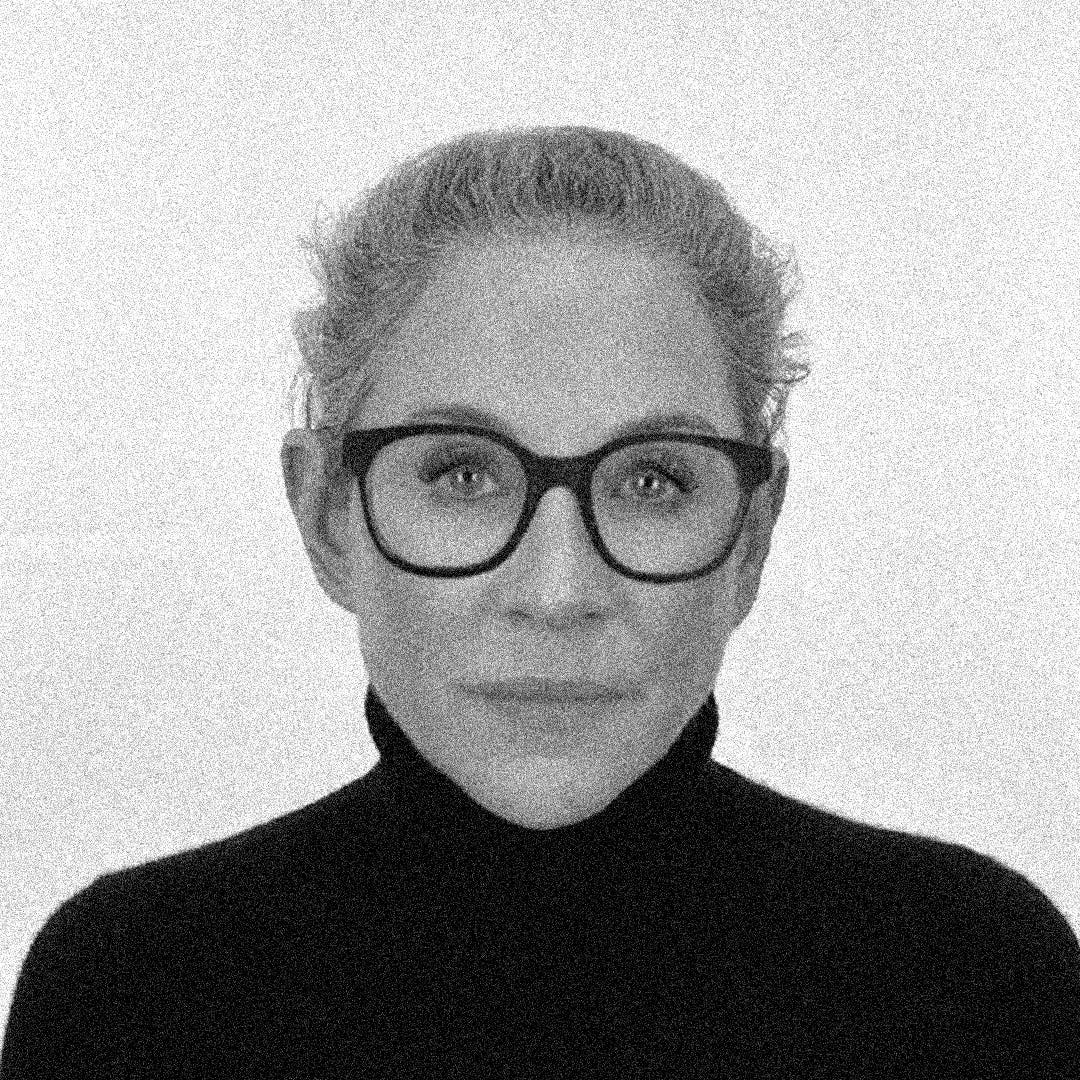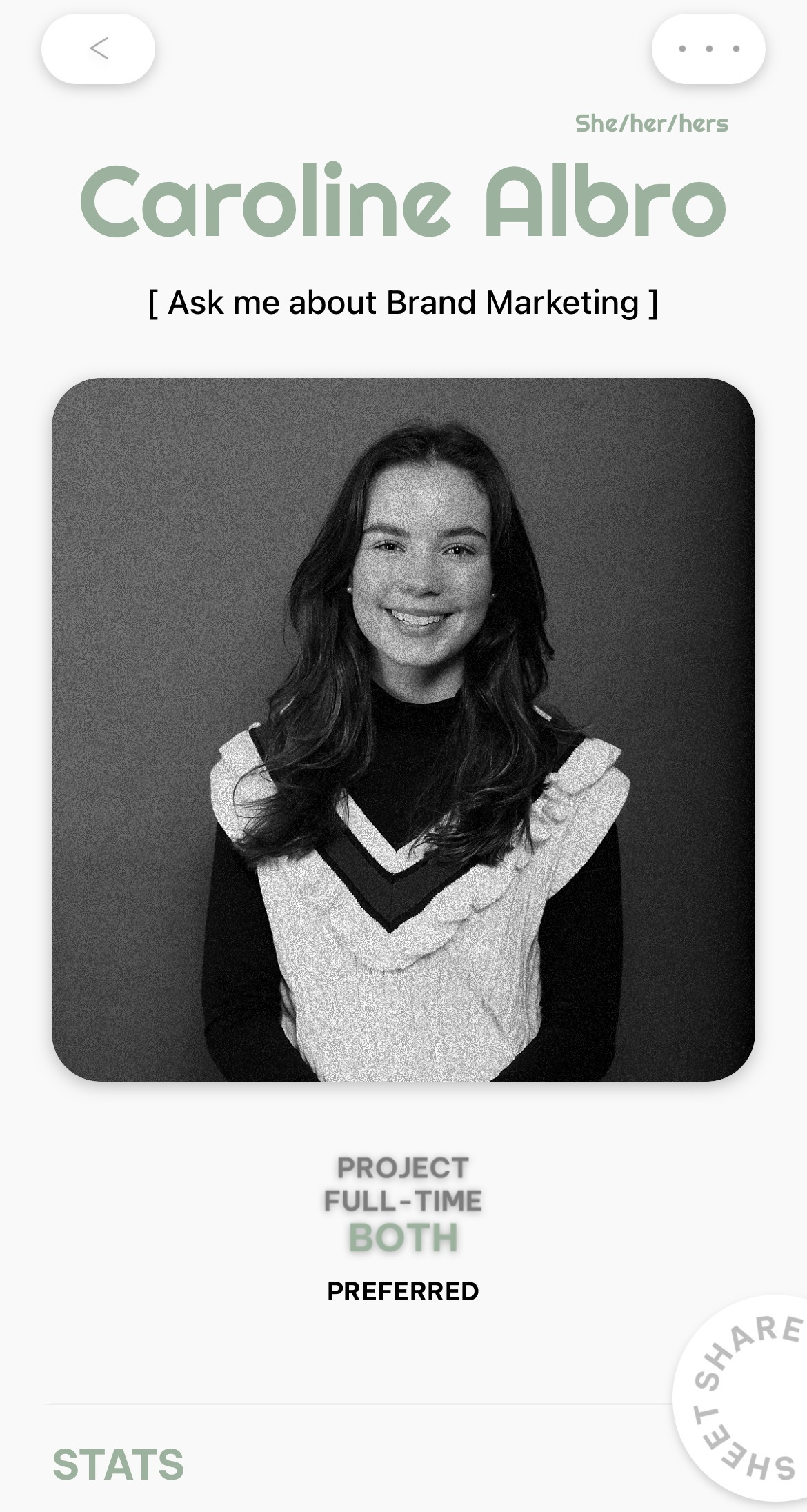Issue #26: Irregular Hours wants to make work work
A conversation with Molly Logan, Founder of Irregular Hours
This week, I am so excited to be chatting with Molly Logan, founder of Irregular Hours, a company dedicated to making work work. Irregular Hours creates tools to help people craft their careers on their own terms.
Despite some recent return-to-office mandates, I still believe that the pandemic was a positive kickstarter for advancement in work flexibility and work-life balance. I also think that Gen Z has the power to bring more flexibility and independence to our work lives, and that’s what Irregular Hours is all about. They recently launched their very first tool, The Cheat Sheet, which we talk about in the interview. (P.S., I’ll be featured in a Cheat Sheet soon, which I’ll share here in the coming weeks!)
Let’s dive into the interview to hear about how Molly came to start Irregular Hours, her hopes for the future of work, how you can best use The Cheat Sheet, and more.
CA: Hi Molly! Thanks for joining me. Tell me a little about your career path and how you came to start Irregular Hours.
ML: Oh, that’s easy! My career path looks like this: Art --> Art + Gen Z --> Gen Z. Since the beginning, my passions and professional paths have been deeply intertwined. And while I envy people with a clear division between work and life, I’m not one of them. I started my career in the arts, pursuing a Ph.D. in art history and working at the Metropolitan Museum of Art, which slowly led me to build a company called School of Doodle—a direct response to the arts being underfunded and stripped from middle and high school curricula. As I started to work with young humans, my obsession moved from the arts to them, or more specifically, to bringing them equitable access to the necessary tools and resources for building a life of purpose and possibility. For me, that meant focusing on their successful transition into work and professional life.
CA: What is Irregular Hours?
ML: Well, there’s the “official” answer: Irregular Hours is a company dedicated to transforming the professional lives of Gen Zs and revolutionizing work culture. By building better learning and earning tools, the next generation can streamline and optimize their career-crafting journey on their terms. This is the place where possibility becomes reality for the next generation of work.
And then there’s the b-side, so to speak: Irregular Hours is holistic healthcare for your career, aka careercare. While we design solutions for the unique needs of people in the early stages of their professional lives, our tools help anyone of any age who is starting their career, thinking about their career, or looking to make a change in their career.
CA: What is the mission behind Irregular Hours?
ML: We want to support people as they move into and through their careers, providing the tools and resources to go from summer internship to CEO. In doing so, we hope to contribute to building a better (aka different) world of work. A world that is built on the values and fundamentals of Gen Z—equity, originality, curiosity, freedom, etc. (More about that vision here).
The current system and its tools are one-size-fits-all—flattening people and asking (more like demanding) that you adjust yourself to fit the structure rather than the structure adjusting to fit you. That’s messed up and deeply destructive to both the individual and the whole. Humans are three-dimensional, complex, and nuanced. Reducing us to zeros and ones isn’t and won’t fix things. Accepting, championing, and engaging all of our metaphorical lumps and bumps will.
CA: You just launched your first official tool, The Cheat Sheet! What is The Cheat Sheet, and how can people best use it?
ML: Essentially, The Cheat Sheet is a professional profile for a new generation of work. After talking to 20K+ people who are building their careers and 5K+ employers—from Fortune 100 HR teams to start-up founders—who are hiring them, we identified several failure modes in the career journey, areas that are fractured, buckling, and fatigued. One of the most consequential being that ubiquitous cornerstone of every career: The Resume.
However, replacing the resume isn’t the answer—at least not yet. ;) Instead, we need a tool that makes it smarter. Enter The Cheat Sheet—an adaptable, visually driven, data-rich professional snapshot that tells the world what you can do, not just what you have done. This secret weapon will help everyone put their best professional foot forward.
We believe that effective storytelling is the foundation for professional and personal success, whether you are telling your story to yourself, a potential employer or client, or collaborators. The Cheat Sheet, coordinated with your other favorite tools (resume, CV, portfolio, social channels, content platforms, etc.), will make you shine.
Some of the ways to use it include:
Building Network: You’re at a casual event and meet somebody you want to add to your network. However, sharing your LinkedIn feels a bit thirsty, and your Instagram is way too personal. Enter The Cheat Sheet!
Cold Outreach: You’re emailing to set up an informational interview and can’t figure out how to fit all of your awesomeness into a few paragraphs. No sweat. Say a few words and let The Cheat Sheet do the rest!
Job Application: You’re applying for a job, and your resume alone doesn’t make the most compelling case for why they should hire YOU. Easy! Include The Cheat Sheet, aka your resume’s new best friend!
CA: What are your predictions and/or dreams for the future of work for Gen Z?
ML: It’s fairly simple: Allow your generation to move into and through your careers with confidence, control, and joy. And most importantly, on your terms. When I graduated from college, too many of my friends went into industries they didn’t love because they thought that’s what they were “supposed to do.” For a while, it was fine. But when we hit our early thirties, my friends started saying they were unhappy and wished they could pursue something a bit closer to their interests, but “it was too late.” Too late at thirty??!! That’s awful. I never want a Gen Z (or anyone else for that matter) to think they don’t have a choice or have to sacrifice what they love and who they are for what they do. You don’t. But you do need help. I don’t care if you use things from Irregular Hours or one of the other future-of-work companies fighting for this inevitable transformation. I just want you to have the resources, frameworks, and tools to (calmly and confidently) figure it out.
CA: How do you approach brand strategy at your company?
ML: As I used to tell our clients at Irregular Labs (my insights and strategy consultancy), Gen Z absolutely judges a book by its cover. Your generation will tolerate a fine but not exceptional product if the brand is consistent, unique, and confident. This is not to say that the product shouldn’t be exceptional; it’s more that the brand is as important as the thing you make.
And then there is the “who” of the brand and product: Who is driving, defining, and influencing both. I’m uncompromising in my belief that one should…forgive me for using this word…“co-create” with the people for whom one is building products. This is not to say you do whatever they tell you, but you must put them at the center of every decision, from brainstorm to build. Personally, I don’t like surprises, so if I’m launching something, I don’t want the question to be if it will be successful, but rather how successful. And the “co-created” brand is a big part of that success.
CA: What have been some of your challenges with Irregular Hours?
ML: Yikes! Besides the typical frictions and discomforts inherent to building something from nothing (and, for the record, the experience of building a company is very similar to building a career), I would say the most significant challenge is probably trying to build a company that looks, smells, and tastes like our vision of the future of work.
With all the talk and commitments (genuine and performative) to inclusive, equitable, and healthy places and systems of work, many people miss the fact that fundamental structural changes need to happen first. Free bagels, team field trips, and DEI initiatives are great but sometimes seem more like changing the wallpaper rather than rebuilding the wall. We want to rebuild (or even better, redesign or remove) walls, which means starting with the tools. As anyone who’s tried to manifest something outside the status quo knows, it can be tough and doesn’t always work. But as far as I’m concerned, I would much rather try and fall on my face than follow rules that contradict my values.
CA: What have been some of your biggest wins for the company (or personally!)?
ML: One thing that makes me really proud (which for me signals a “win”) is our team. I know that sounds like some piece of insincere garbage, but it’s true. Specifically, our team’s tenacity, creativity, and curiosity over the past eight years as we took Irregular Hours from a tiny shoulder-shrug insight to a company. This is not easy and definitely not for the faint of heart. But you should never underestimate the power of people who want change and aren’t afraid to question the status quo.
I also think the fact that the team has evolved and shape-shifted, as any healthy, resilient structure should, contributed to where we are today and, hopefully where we are going. With Irregular Hours, people don’t leave as much as recalibrate and reconstitute. Because we try to adapt the job to fit the person, it means that rather than having a hard entrance and exit, we have something more porous and elastic. I don’t think it’s dissimilar to a professional sports team. Once a Yankee, always a Yankee. (I have no idea why I used a baseball analogy. I’m a hockey girl.;))
CA: What’s next for Irregular Hours?
ML: Duh, Make Work Work!
Thank you so much for joining me, Molly! If you’re interested in checking out The Cheat Sheet, you can sign up for early access here.
And if you have any questions for Molly, feel free to leave ‘em in the comments! See you next week.







